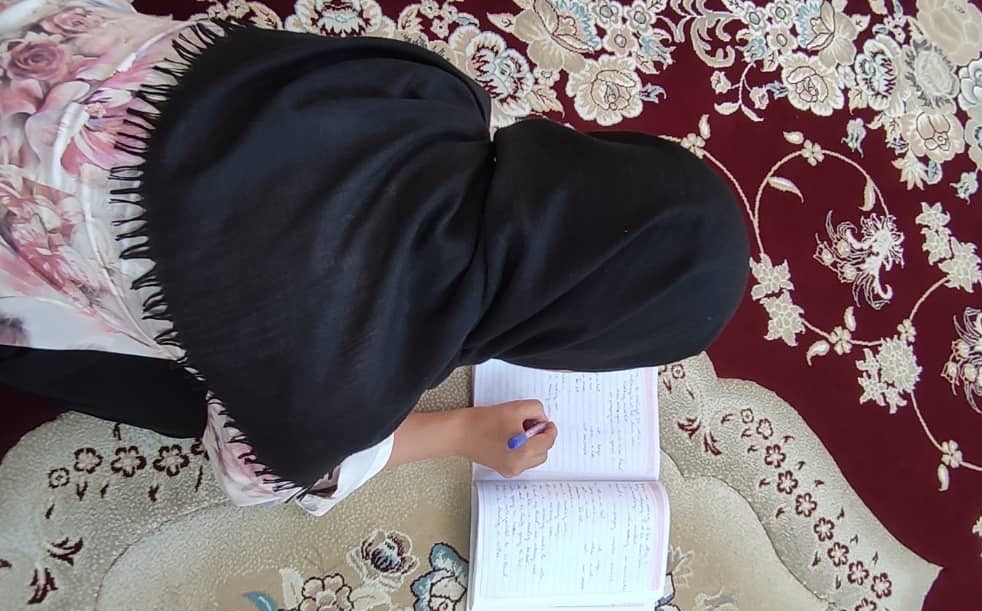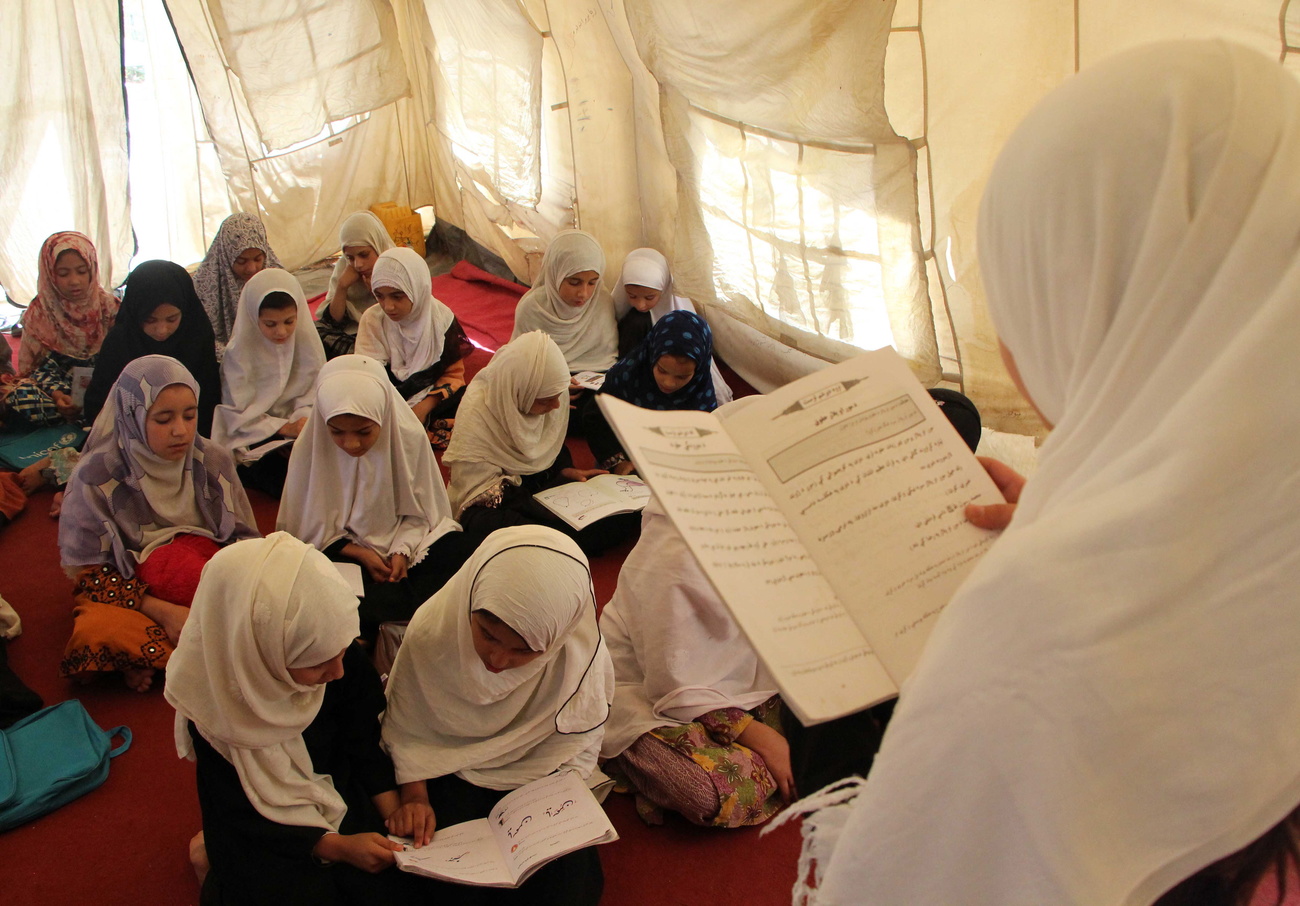Annegret Mathari
In an email ahead of our scheduled interview, Nazifa Jalali said she was postponing our talk. “I have to deal with a case of stoning,” said the Afghan human rights activist. It was about a 17-year-old girl, she told us a few days later. The girl had been raped by her brother, who was also a Taliban commander. The Taliban in that province in the centre of Afghanistan had decided to stone the girl and not the brother.
The task now was to mobilise local figures, including tribal elders, to negotiate with the Taliban so that the girl could be taken elsewhere for her protection.
Jalali is a member of the Human Rights Defender HRD-Plus network and documents human rights violations in Afghanistan. She currently lives in Norway. She also took part in the autumn session of the United Nations Human Rights Council in Geneva.
Jalali criticises that the international community has only written reports in the three years since the Taliban took power, rather than acted proactively to hold the Taliban to account. In doing so, it has weakened women in Afghanistan, she says.
In those three years, the Taliban have issued over 80 decrees and directives restricting the rights of women and girls. For example, girls are not allowed to attend secondary school and women are practically not allowed to work; they cannot stay in parks or, more recently, speak in public.
The Taliban are not recognised internationally, above all because they deny girls and women their basic and educational rights. This makes political contact between the UN and the de facto government more difficult.
No women at the negotiating table
At the end of June, representatives of the Taliban government took part for the first time in a meeting organised by the UN in Doha with diplomats from 25 countries and international organisations. They were hoping for international recognition.

However, women were excluded from this third meeting of the so-called Doha Process, which aims to address the challenges in Afghanistan. The UN officials said they had accepted the Taliban conditions of a conference without Afghan women in order not to jeopardise the dialogue.
The Taliban were not invited to the first meeting convened by the UN in May 2023. Although they were invited to the second meeting last February, they boycotted it because representatives of Afghan civil society, including women, also took part.
The meetings are supposed to remind the Taliban of its obligations under international law. In December 2023 the UN Security Council adopted a resolution (though without backing from Russia and China) stipulating that international recognition of the Taliban would be dependent on it honouring fundamental rights, such as the Convention on the Elimination of All Forms of Discrimination against Women (CEDAW), which Afghanistan is a party to.
‘No concessions without reforms’
Rosemary DiCarlo, the UN Under-Secretary-General for Political and Peacebuilding Affairs, chaired the third meeting in Doha. She told the media afterwards that although women’s rights were not on the official agenda, participants raised the issue several times and emphasised the need for inclusive government during the two days of talks.
Discussions focused on the development of a private economic sector and supporting the Taliban in maintaining their success in the fight against drugs. Since the Taliban took power, opium cultivation has been reduced by around 90%.
However, DiCarlo ruled out recognising the de facto regime in Kabul until the Taliban lifts restrictions on women’s education and participation in public life.
She added that recognising Taliban rule was not the responsibility of the UN, but the decision of the individual countries. So far, no country has recognised the Taliban government, but 16 countries have an embassy in Afghanistan, including Japan, China and India.
The third round of talks in Doha ended without the Taliban making any promises of reform or receiving any concessions from the international community. The participating countries provisionally agreed to set up working groups on the topics of economic development, combating drugs and terrorism.
‘Too high a price’
Richard Bennett, the UN Special Rapporteur on Afghanistan for the Human Rights Council in Geneva, described the exclusion of women as “too high a price to pay”. Afghan women’s and exile organisations as well as international human rights organisations also criticised the UN.

“The rights of women and girls in Afghanistan are non-negotiable,” said the Secretary General of Amnesty International, Agnès Callamard, in a statement ahead of the conference.
“It makes me sad to talk about the third Doha conference knowing that women were excluded,” says Afghan human rights activist Fereshta Abbasi, who works for Human Rights Watch in the United Kingdom.
She is referring to UN Security Council Resolution 1325, which mandates the UN to ensure the participation of women at the negotiating table. This resolution from the year 2000 obliges UN member states to protect women’s rights and to include women on an equal footing in peace negotiations, conflict resolution and reconstruction.
Nazifa Jalali said that after the third conference in Doha, without women at the negotiating table, the people of Afghanistan had completely lost hope in the international community. “The consequence of this meeting is that the Taliban can continue to commit their crimes in the knowledge that they will not be prosecuted,” she said.
Gender apartheid
UN rapporteur Bennett and other UN bodies have described the human rights situation of women and girls in Afghanistan as institutionalised gender apartheid. Gender-based persecution is currently recognised as a crime against humanity.
Afghan and international human rights organisations are calling for the term gender apartheid to be included in the UN General Assembly’s ongoing negotiations on a new convention on the prevention and punishment of crimes against humanity. Some Western diplomats are reluctant to use the term because it is reminiscent of the former racial segregation in South Africa and because of the strict sanctions imposed on the apartheid regime.
Former UN ambassadors
Because the Taliban government is not yet recognised internationally, Afghanistan is still represented by its pre-Taliban ambassador at the UN in Geneva, Nasir Ahmad Andisha. He represented his country this year at the Universal Periodic Review (UPR) of Afghanistan’s human rights situation, during which Afghanistan received 243 recommendations from the UN states to improve its human rights situation.
Afghanistan, or rather Ambassador Andisha’s Afghan delegation, accepted 215 of these, including the end of corporal punishment such as flogging and the lifting of draconian restrictions on education and employment for girls and women. The UN Mission in Afghanistan (UNAMA) is responsible for following up on the implementation by the Taliban authorities of the UPR recommendations.
In October, the UN Human Rights Council in Geneva extended the mandate of rapporteur Bennett by one year. However, the NGO demand for a supplementary body to gather evidence of human rights violations with the aim of bringing the perpetrators to justice was not included in the Council’s resolution.
The girl threatened with stoning is still in prison.
Edited by Imogen Foulkes/vm/ts
 Afghanistan Peace Campaign
Afghanistan Peace Campaign


